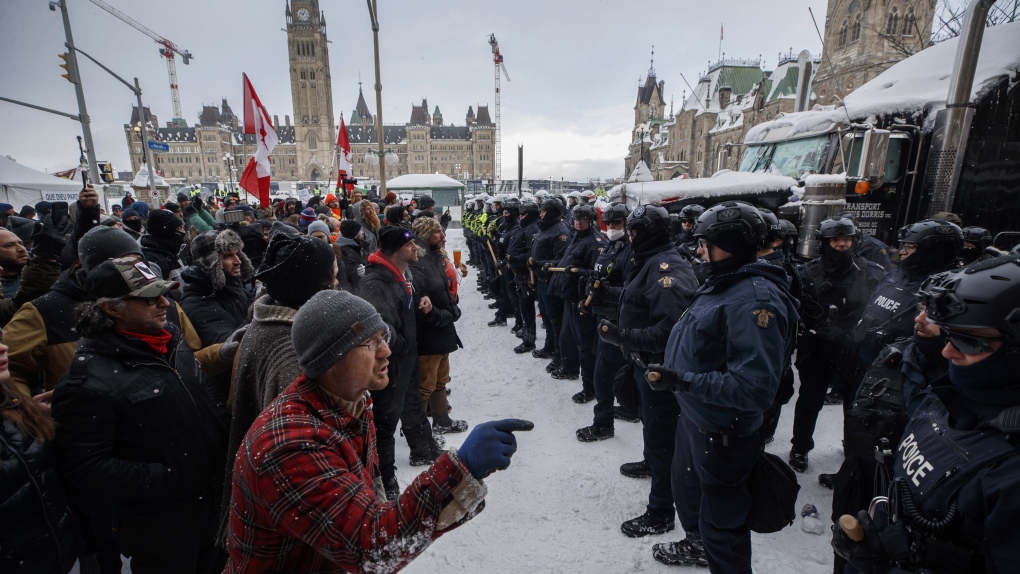Court proceedings for two leaders of last year’s trucker rally in Canada started this week. Named the Freedom Convoy, the group came to Ottawa in early 2022 to oppose COVID-19 vaccine rules.
Three days of unrest followed. Prime Minister Justin Trudeau used special emergency powers to remove the protesters. Critics called this move excessive.
Organizers Tamara Lich and Chris Barber face various charges. These include damaging property and obstructing law enforcement.
“The main issue is whether a peaceful rally should lead to criminal charges,” said their lawyers.
(Court proceedings for two leaders of Canada’s Freedom Convoy started this week)
Lawrence Greenspon, a defense attorney, criticized labeling the event as an ‘occupation.’
He mentioned real occupations like Russia’s actions in Ukraine as a comparison.
Prosecutors will call nearly 24 witnesses in a 16-day trial. Police officers and city officials will be among them.
They will show evidence that Lich and Barber did not leave even after the Emergency Act came into effect.
Ottawa residents had complained about constant noise from horns. They also reported feeling harassed during the rally.
Lich and Barber could face more than ten years in jail if found guilty. Police arrested almost 200 people when they finally cleared the protesters.
Freedom Convoy
The “Freedom Convoy” drew international attention. Similar protests inspired by it popped up around the world.
The Canadian movement started as an online initiative. Social media played a big role in rallying participants.
Before this event, Canada had not widely used its Emergency Act for civil protests.
Trudeau’s decision to use it has sparked national debate.

The trucker protest aimed to challenge vaccine mandates. Specifically, these mandates affected cross-border drivers.
This was not the first large-scale protest against COVID-19 restrictions in Canada. However, it was unique for its scale and impact on a national capital.
The use of emergency powers led to arguments about civil liberties. Some saw it as government overreach.
Others felt it was necessary to keep public order.
This case will likely have long-term implications for protests and civil liberties in Canada.

